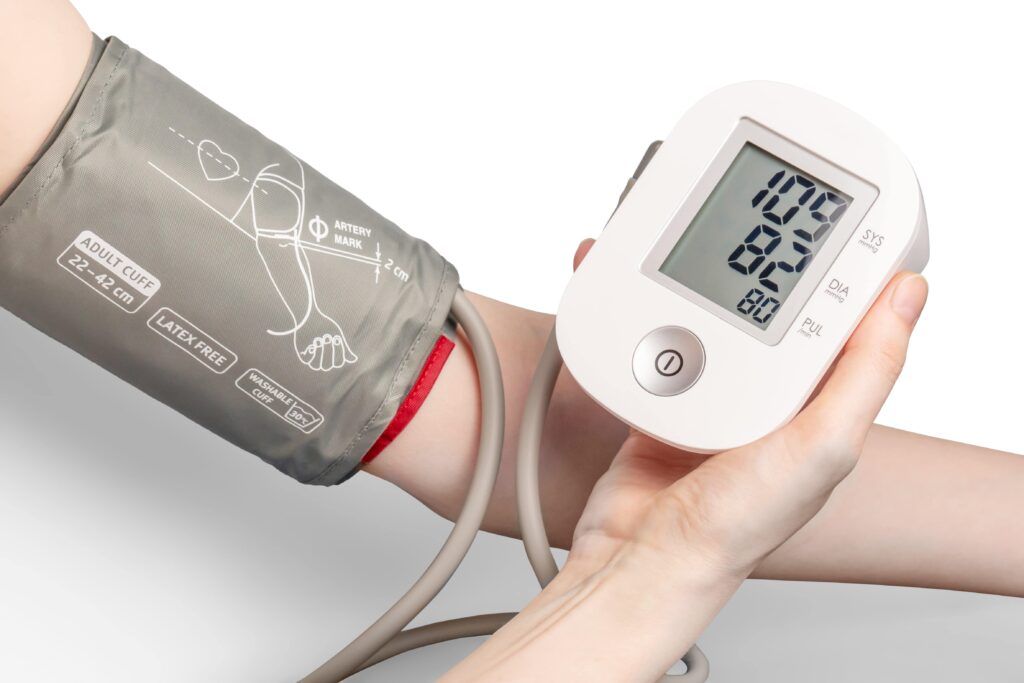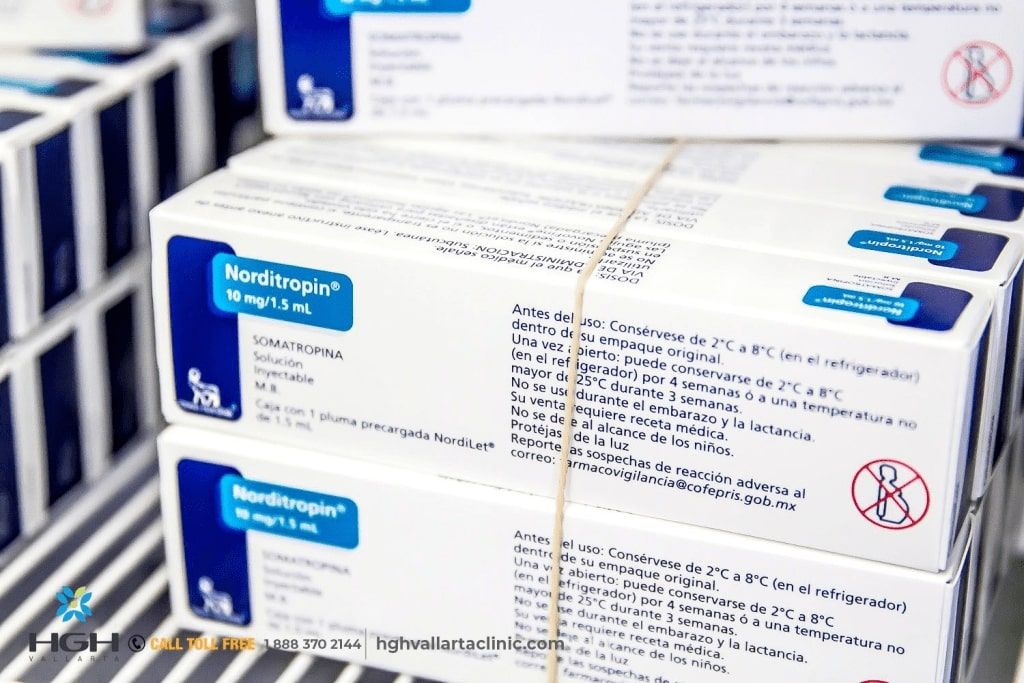Are you looking to grow muscle or burn fat? Do you need a quick recovery after workouts or a way to boost your metabolism?
If so, you should consider taking human growth hormone (HGH). The effects of HGH are numerous. Many patients enjoy the positive physical, mental, and emotional changes that come with taking HGH.
However, before starting human growth hormone supplements, you should consider the side effects of HGH, especially when it comes to high blood sugar and high blood pressure.
To learn more, keep reading.
What Is Human Growth Hormone?
There are several hormones in the body that play a role in regulating blood sugar and blood pressure levels. Human growth hormone (HGH) is one of these hormones.
Growth hormone plays roles in water retention and glucose metabolism. So, it has the ability to raise and lower blood pressure and blood sugar. The way that your body responds to the hormone depends on how much of the hormone you have.
While most people have an adequate amount of human growth hormone, there are some people who have human growth hormone deficiencies or excesses.
Without treatment, growth hormone deficiency may cause obesity, which can cause the development of chronic illnesses like type 2 diabetes and hypertension.
Human Growth Hormone Uses
HGH is essential to growth, especially when it comes to increasing bone density and muscle mass and improving mood. There are multiple hormones that control growth and development, metabolism, and mood. But, human growth hormone is unique.
Our growth hormone levels change throughout the day. And, things like eating and being physically active can affect these levels.
Exercise, sleep, stress, and low blood sugar can increase HGH. Even small changes can cause changes in our bodies.
Having too much or too little HGH can cause growth problems, especially in children. However, adults may use human growth hormone to build muscle, improve exercise performance, or slow aging.
Human Growth Hormone Benefits
Human growth hormone can help build, maintain, and repair tissue throughout the body. With these effects, there are multiple benefits that HGH offers:
- Increasing muscle mass
- Quickening bone healing
- Enhancing weight loss
- Increasing bone density
- Reducing cardiovascular risk
- Resolving erectile dysfunction
- Enhancing cognitive function
- Promoting better sleep habits
These are the bare minimum benefits of taking HGH. Many patients report these during their course of treatment.
However, there are a few hidden gems of HGH. These are the lesser-known effects of taking human growth hormone:
- Reducing insulin resistance
- Improving memory
- Increasing concentration
- Lowering LDL (bad) cholesterol
- Lowering triglyceride levels
- Increasing sexual desire
- Enhance mood
All of these human growth hormone benefits can improve your overall quality of life. By affecting everything from sleep to mood, human growth hormone has the ability to completely change your day-to-day functioning.
Human Growth Hormone Side Effects
Since HGH is a hormone, there are a few side effects to take into consideration. Here are some of the most common ones:
- Muscle aching
- Joint discomfort
- Headaches
- Swelling in the hands and feet
If you experience these symptoms while taking human growth hormone, you should talk to your physician. They may need to adjust the dose that you’re on to mitigate these side effects.
In extremely high amounts, human growth hormone can lead to the development of acromegaly. This is a condition of excess HGH that causes many negative manifestations throughout the body.
Patients with acromegaly experience bone thickening rather than bone lengthening from the growth hormone causing growth in the wrong direction. This can cause an overgrowth of the bone, thickening of body hair, and dangerously high blood pressure.
Acromegaly is a life-threatening condition. Patients experiencing signs of acromegaly should see an emergency physician as soon as possible.
Effects of HGH on Blood Sugar
Human growth hormone helps the body regulate blood sugar levels. It counteracts the effect of insulin while promoting gluconeogenesis.
While gluconeogenesis (the process of creating glucose) occurs in the liver constantly, HGH can help bolster the process.
Because of these effects, scientists consider HGH a counterregulatory hormone of insulin.
Does Human Growth Hormone Cause Low or High Blood Sugar?
After injection, human growth hormone does not block insulin secretion. So, there shouldn’t be a significant change in your blood sugar levels unless you have diabetes. Patients without diabetes should only have a small increase in their fasting glucose.
Not having enough human growth hormone (HGH deficiency) doesn’t affect blood sugar levels either. Your body has other mechanisms to maintain a stable blood sugar level. These mechanisms include cortisol, adrenaline, and glucagon.
However, it is important to note that long-term growth hormone deficiency can lead to the development of fat around the internal organs. This produces a condition that physicians call ‘visceral obesity.’ This is a specific kind of obesity that researchers have linked to poor health outcomes.
In fact, visceral obesity may lead to insulin resistance and type 2 diabetes. This would lead to higher blood sugar levels.
Therefore, human growth hormone can have an indirect effect on blood sugar for some patients.
Does Human Growth Hormone Cause Insulin Resistance?
Like its effect on blood sugar, HGH has an indirect effect on insulin levels. High levels of HGH don’t block the release of insulin. Rather, insulin spikes because of the effect that HGH has on blood sugar.
Some scientists believe that HGH lowers insulin sensitivity.
HGH prevents the body from taking up glucose in the adipose tissues. This increases insulin resistance in the body while reducing the energy that the body supplies to these tissues. In turn, these tissues cannot develop more fat.
Human growth hormone also tells the body to release fats from the adipose tissues. These come out in the form of triglycerides and then travel to muscle tissue, where they’re reabsorbed by the body. Here, the muscle tissues use the fats as energy.
Throughout this process, triglyceride levels rise. This is the final product that researchers believe leads to insulin resistance. Thus, human growth hormone may indirectly cause insulin resistance.
Can Patients With Diabetes Take Human Growth Hormone?
Patients with diabetes may need to increase their antidiabetic medications while taking human growth hormone. Otherwise, your blood glucose levels may spike to dangerously high levels.
Increasing the amount of insulin you take will not counteract or alter the HGH in any way. So, you should still receive the benefits that other patients get to take advantage of.
Hyperglycemia (high blood sugar) remains ineffective on bodily growth hormones as well. Although, some scientists believe that it may create daytime peaks of growth hormone rather than its normal cycle.
Most patients may be able to return to their normal diabetic therapy after a few months of taking the treatment. But, you should never change your regimen without talking to your physician.

Effects of HGH on Blood Pressure
Hypertension is common in patients with growth hormone deficiency. The lack of growth hormones leads to increased arterial wall thickness, higher peripheral blood vessel resistance, and decreased response to vasodilators.
Research has shown that human growth hormone supplements can help patients lower their blood pressure while increasing heart rate. Most notably, HGH may be able to lower diastolic (bottom number) blood pressure.
In patients with a growth hormone deficiency, HGH treatments can improve the structural integrity of the heart. By thickening the cardiac muscle and sustaining better heart functioning, HGH can improve the ejection fraction (pumping volume) of the heart.
Some patients taking HGH may experience water retention and renin secretion. But, these patients may still develop lower blood pressure.
Does Human Growth Hormone Cause High Blood Pressure?
In patients with a growth hormone deficiency, HGH therapy should not cause an elevated blood pressure assuming that the patient has normal blood pressure before starting therapy.
Can Patients With High Blood Pressure Use Human Growth Hormone?
HGH therapy is safe for patients with hypertension as long as they have their blood pressure under control. These patients should be taking medications to control their blood pressure.
Because HGH therapy may lead to sodium retention, it’s important to talk with your physician before starting human growth hormone therapy.
Are Growth Hormone Boosters Safe?
If you are taking or are considering taking human growth hormone, you should talk to your physician about safe practices. Your doctor can help you determine the right dosage for your condition(s). And, they can help track bodily changes as you take the medication.
If you experience changes while taking human growth hormone supplements, you should alert your physician right away. You may need emergency medical care for some side effects or adverse reactions.
Human Growth Hormone for Sale
The effects of HGH are astounding. Many patients report positive changes in just a cycle or two of the hormone treatment.
That said, patients with hypertension and/or diabetes should talk with their physicians before starting human growth hormone supplements. And, all patients should remember to stay in contact with their physicians about possible side effects and adverse effects of the treatment.
If you’re ready to get started with human growth hormone, check out our human growth hormone supplements.


